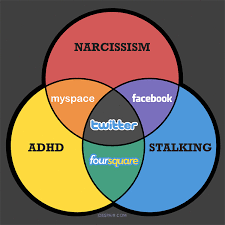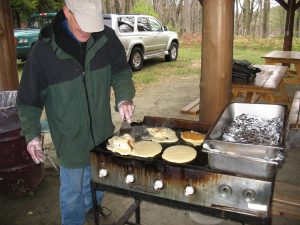
About three years ago in the run-up to our 50thprep school reunion the organizers requested that each of us submit a short piece about our experiences since graduation. Among the various particulars that I listed in a section about “Who’da thunk it”, i.e. at the time of our graduation, was this:
As a recidivist perpetrator of attempted humor, I know full well that “LOL”* is no substitute for a belly laugh.
“. . . and that most of us would spend hours every day staring at illuminated screens of all sizes interacting electronically with one another, simultaneously making us closer and more isolated?”
Well, what about it?
My social media experience is limited to a handful of venues. I once was on Facebook but withdrew about five years ago because I deduced that Facebook was the source of a slew of unsolicited garbage that threatened to derail my spam filter. I now participate in one Facebook Group – my prep school class, using an alias and a dedicated e-mail address to isolate spam. The Group has a pulse but just barely. I was on LinkedIn throughout my tenure as a solo consultant; the exposure and networking were necessary. I discontinued that the instant I retired last year. And I had a Twitter account associated with my consulting business but posted only a handful of tweets. In terms of “traditional” social media, then, I am on the sidelines. But this community is itself another social media group, is it not? As a newbie my experience is so brief I cannot really address its significance in the larger sphere. I am more than a bit taken by the premise and have enjoyed my time, albeit limited, on the platform. My continuing social media activity is a college class listserv, a discussion forum begun over twenty years ago. I have participated for the last fifteen years. Indeed, it is via the class listserv that I am now in this community (thanks again, Suzy and John).
Obviously, there is a fundamental difference between the class listserv and this community, on the one hand, and Facebook and its ilk on the other. The former is “community centric” – the premise of the community attracts participants who then choose to enroll; the hook is the conversation. The latter (Facebook Groups excepted) is a “serial” community – an extended network of “friends” builds over time, one “friend” request after another; the hook is, well, I am not sure what the hook is. Certainly, Facebook is a way to reconnect with friends and acquaintances from one’s past, but how productive is it in establishing new relationships, new friendships? Color me skeptical. On the other hand, the listserv and this community strike me as fertile grounds for new friendships.
The reason, I think, is patent: Most often, if not universally, friendships form over shared interests. When the purpose or an essential byproduct of an online group is the development or promotion of shared interests, friendships will naturally form. The listserv includes hundreds of classmates and regular participants number about eighty, more or less. A participant’s post may be a reminiscence, a commentary on political or social current events, a request for recommendations, or any number of things. Conversations ensue. And friendships. Over the years I have grown close, at least virtually, to many. Ironically these friends are people I did not know when we were undergraduates. Because the linkage is our college class, at reunions we have the opportunity to actually meet the people we have made our virtual friends. Magical.
But. There is a trap, as I suggest in my opening. It is possible, whether in the context of a “community centric” group or “serial community” to become so wrapped up in it as to withdraw from the nonvirtual world. For some, and I think of a classmate in Wisconsin who is wheelchair-bound, listserv participations, and he has many, are lifelines. But for those not so physically challenged, isolation is by choice. And it squanders the opportunity for the rewards of real friendship. As a recidivist perpetrator of attempted humor, I know full well that “LOL”* is no substitute for a belly laugh.
I left my last corporate employment gig over fifteen years ago. I went from managing a firm of one hundred twenty-five to solo consulting, and relocated from Chicagoland to the Adirondacks. Instant isolation. I reached out, virtually, in many ways, including joining the class listserv. But I also undertook to get actively into the community. It started by renting a post office box rather than receiving mail on my street. The daily interaction was a refreshing break in the day. After a year we relocated to the county seat nearby, and the process continued. Over time I developed a new network, including joining the local Kiwanis organization. Kiwanis is a service, rather than fraternal organization. Our group did a lot for the community, particularly fund raising for other groups. And it was a good bunch of folks. I look back, now, fondly on many of those activities, and relish, particularly, a pancake breakfast fundraiser where I manned the griddle and earned the nickname, “Bernie”. I loved it.
So. Let us enjoy our virtual communities and relationships. But may I suggest that each of you continue to foster new friendships in the nonvirtual world? Who knows, you may discover your inner Bernie.
– – – – – – – – – – – –
* Trivia time: years ago, I dabbled in amateur radio. At the time most “hams” communicated telegraphically rather than by voice. Come to think of it, that may have been the first social media. The ham equivalent of LOL was “HIHI”: dit-dit-dit-dit dit-dit dit-dit-dit-dit dit-dit. It was supposed to mimic the sound of laughter. Seriously.
Retired attorney and investment management executive. I believe in life, liberty with accountability and the relentless pursuit of whimsy.




Very interesting piece, Tom. I think you are absolutely on point to differentiate between like-minded on-line groups (like your college listserv) where you all have something in common, and the randomness of FB, where there are privacy concerns, vendors are hawking their wares and there isn’t a sense of community. And nothing in cyberspace should every be misconstrued for real person-to-person connection. When we are alone, it can provide us with others, but there is nothing like a real human to talk to, laugh with, commiserate with.
I chair my college reunions (Brandeis). We are much smaller, younger and less well-organized as an institution than Harvard. I’ve found through the years that I have become friends with people through the reunions that I barely knew as undergrads; real, lasting friendships. But we have little class organization or sense of self (Class of 1974, closely screened and small entering class after Kent State and the student strikes against the invasion of Cambodia; we are ornery and not well-connected). Perhaps we could start a listserv as a way to interact and breed community. My 45th reunion is next weekend, will be poorly attended and I am looking for a new model to generate better interaction. Thanks for this thought.
Thanks, Betsy. Yes, our listserv has been instrumental in uniting/reuniting our class. We are fortunate to have a classmate with the technological skills, and patience, to serve as the administrator. Nothing would happen without him.
Tom is exactly right. And the fact that classes around ours have also had listservs that are not nearly as robust as ours suggests that there are a lot of dynamics at play here. (Of course, having had then-Harvard President Pusey declare — or so myth goes — that we were the “Worst Class Ever” is quite a unifying war cry.)
Tom, this is a thought provoking essay. I especially love the line, “As a recidivist perpetrator of attempted humor, I know full well that “LOL”* is no substitute for a belly laugh.” My kids now “talk” to me mostly via text, so a lot of the time LOL or a heart emoji will have to do. I’ve always been a huge believer in real, face-to-face community. When I founded Cherry Preschool back in 1991, I often cited Robert Putnam’s “Bowling Alone” and encouraged actual community engagement. Out staff was a team of teams. Our parents volunteered countless hours. Since I’ve retired, things have changed. I don’t know if the huge amount of time folks spend on social media is the cause or a symptom of the pressures of life in 2019.
Thanks, Laurie. My partner’s daughter often says to her, “I was talking to so-and-so”. They’re not talking, they’re texting back and forth. On their phones, of course. Seems to me that’s like felling a tree by swinging a chain saw like as if it was an ax.
Terrific post, Tom. You really put your finger — or, perhaps more accurately, your thumbs — on the inherent conflict in social media. It can be a stupid or scary waste of time (and frequently too much time) but it is not without some redeeming value. Obviously, I share with you the view that our class listserv does provide that value. So context — who, exactly, is the community? — is crucial. But it remains, or should remain, secondary to “nonvirtual friendships,” as you put it. Of course, now that Suzy and I have introduced you to Retro, you’ll probably be fully consumed by it. We can then attend Retro Anonymous sessions together.
While I don’t think I’m consumed by Retro it is nibbling around the edges. A lot. But what the hey?
Tom, I love everything about this story! The Venn Diagram is perfect, as is your “who’d a thunk it” for your prep school 50th reunion. I’m interested in your reaction to FB, LinkedIn and Twitter, and while I do spend some time on FB, I agree with you about the others. I think your distinction between community-centric platforms and serial communities is profound.
I also agree that your class listserv (which I was allowed to join after some vetting, even though I am in the next class) is a valuable connection among classmates and nearmates, although I wouldn’t have categorized it as social media. My class also has a listserv which gets very little action except in the months leading up to a reunion, but, interestingly, my class’ FB page has a lot more activity. I don’t know what to deduce from all of that. The nice thing about getting to know people through a class listserv or FB page is that you can generally meet them in person at the next reunion. With all these ’71 folks on Retrospect now, I’m thinking I should crash your next reunion so I can meet all of you!
Thanks, Suzy. In fairness I think I simply don’t know enough about Facebook and the way it’s used to comment, other than to agree that its power to connect and reconnect is unparalleled. As to the 50th upcoming, by all means do come; you certainly won’t be crashing.